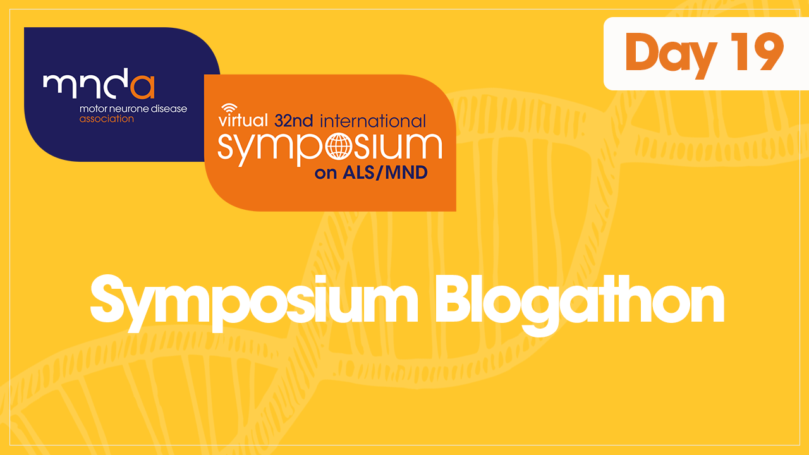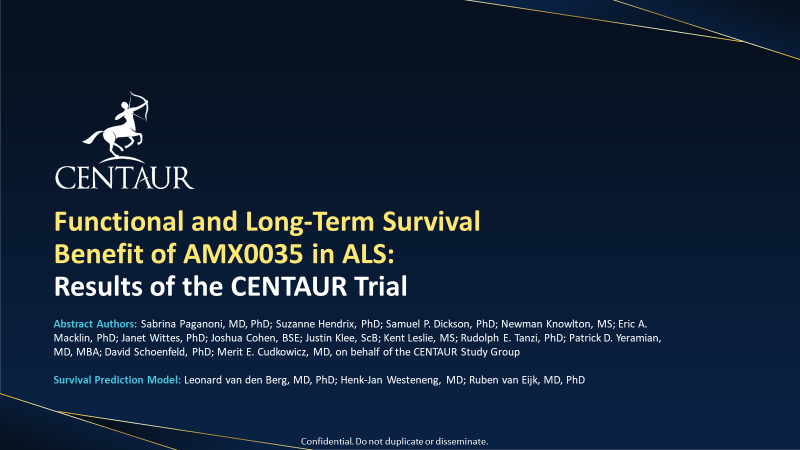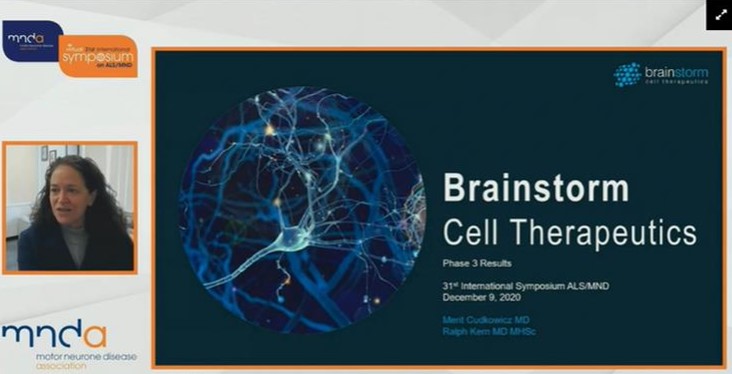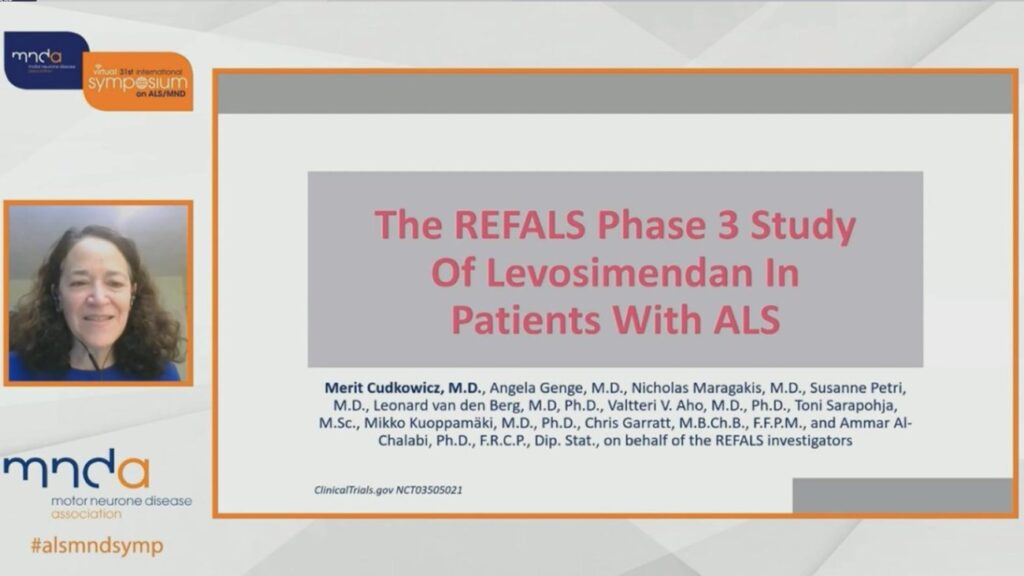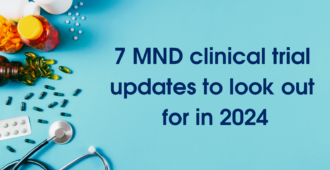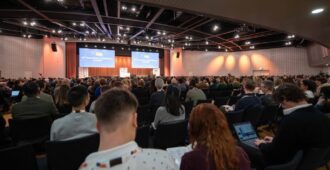This is blog number 19 in our ‘Symposium Blogathon’ – counting down to the 32nd International Symposium on ALS/MND. Numbers in bold green type correspond to the code in the abstract book. Click on the number to be redirected to the full abstract (the page may take a minute to load).
Clinical trials are research studies in human volunteers that determine whether potential treatments are safe and effective. Traditionally, clinical trials have strict guidelines about who can take part. Clinical trials are usually conducted in four progressive phases which check for safety and efficacy, establish the correct dosage and method of delivery, and assess the drug’s ability to treat the condition it is designed for.
Clinical trials take many years to complete and are extremely costly. At any stage the drug can be deemed too dangerous, or inefficient, to take into the next phase. To speed up the process, clinical trials are beginning to incorporate a biomarker element (a biological characteristic) into their design. Monitoring levels of specific biomarkers during a trial will help establish if the drug or intervention being tested is influencing disease progression. Researchers are also looking to ‘repurpose’ drugs that are already licensed to treat other diseases/conditions, as potential treatments for MND.
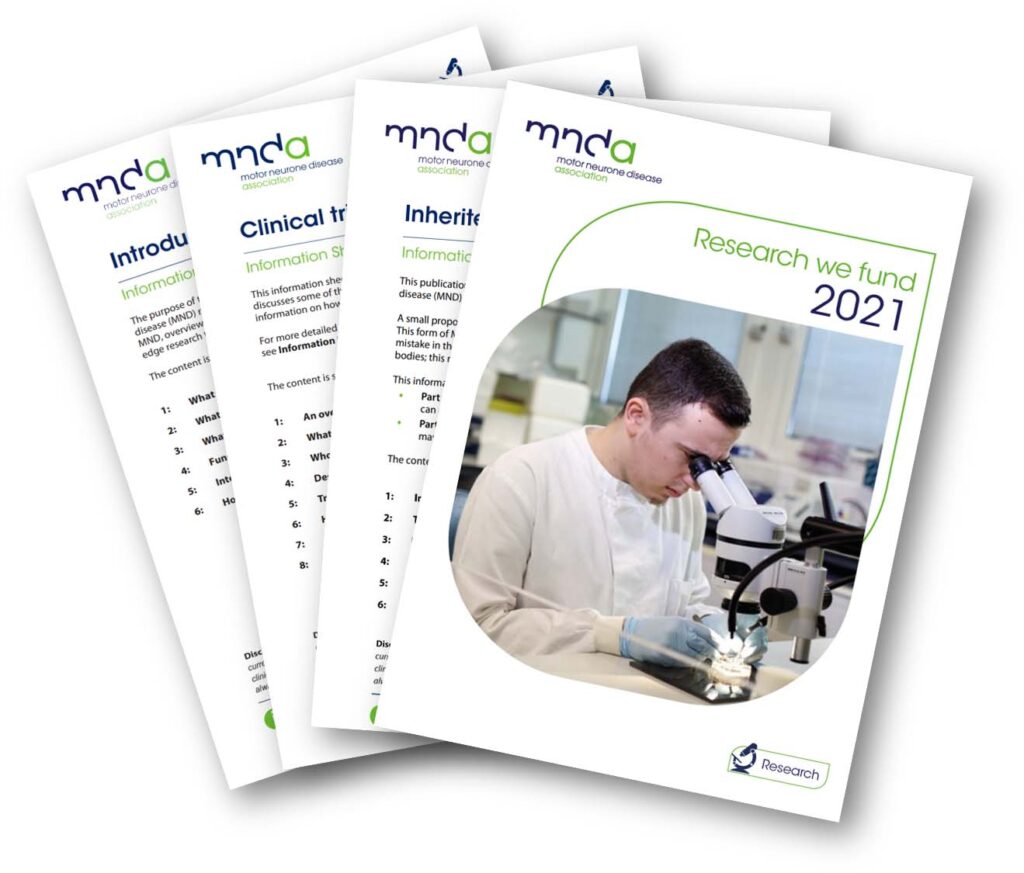
RELATED TOPIC
Information sheet
Clinical trials
At this year’s Symposium there are several talks and posters giving updates on current clinical trials of potential new drugs for MND. We will take a closer look at some of them in this blog, and tomorrows.
AMX0035 (CENTAUR)
In her oral presentation (C3), Dr Sabrina Paganoni will report the long-term functional and safety results from the CENTAUR trial of AMX0035 – a combination therapy of sodium phenylbutyrate (PB) and taurursodiol (TURSO or TUDCA). AMX0035 was designed to reduce neuronal death by modifying endoplasmic reticulum and mitochondrial dysfunction.
CENTAUR encompassed a 24-week Phase 2 clinical trial and up-to-132-week open-label extension (OLE) – when all participants who completed the 24-week trial were offered the trial drug. It was found that earlier initiation and longer duration of the drug were associated with long-term functional benefit, as measured by ALSFRS-R score progression over 48 weeks. Improved retention of measures of upper-limb and respiratory muscle strength were also seen in participants who had received the drug in the 24-week CENTAUR trial.
A study design overview of the PHOENIX Phase 3 trial of AMX0035 is given in poster CLT-21.
NurOwn
Professor Robert Brown gives an update of NurOwn in his oral presentation ‘NurOwn targets multiple disease pathways in ALS Phase 3 trial’ (C5). NurOwn is derived from bone marrow derived mesenchymal stem cells that have been shown to favourably modify neuroprotective and neuroinflammatory cerebrospinal fluid (CSF) biomarkers following a single injection into the CSF.
A previous Phase 3 clinical trial of NurOwn did not meet its primary endpoints. The goal of this further analysis was to evaluate treatment effects on CSF biomarkers and their relationship to clinical outcomes.
Statistically significant CSF biomarker changes from baseline were observed with treatment compared to placebo in biomarkers related to neuroinflammation, neurodegeneration and neuroprotection, consistent with earlier trials. This suggests that the treatment has important effects on multiple MND disease pathways. The data also suggests that simultaneously targeting multiple MND disease pathways may be necessary to achieve meaningful clinical outcomes.
Levosimendan (REFALS-ES)
Poster CLT-02 presents the results of the REFALS-ES study – an open label extension to the REFALS Phase 3 clinical trial of levosimendan. Levosimendan had previously been shown to have positive effects on supine slow vital capacity (SVC) in the LEVALS trial, and it was hoped that these effects would be confirmed in the REFALS trial. However, neither the primary nor secondary endpoints of the trial were met. Participants completing the 48-week REFALS trial were given the option to continue treatment with levosimendan in an OLE to evaluate the long-term safety and effectiveness of the treatment for people with MND. A total of 227 REFALS participants entered the OLE and received levosimendan for an average of 24 weeks. The results will be discussed fully at the Symposium.
Clenbuterol
Clenbuterol is a steroid-like drug that has been used as a performance enhancer by professional athletes due to its perceived ability to make muscles bigger and stronger. Clenbuterol treatment preserved motor function and prolonged survival in a mouse model of MND and, in a previous study carried out in Italy, a low dose improved limb strength and forced vital capacity (FVC) over six months.
A team from the USA, headed by Professor Richard Bedlack, conducted a widely inclusive open label trial of Clenbuterol in 25 people with MND that looked at safety, tolerability, ALSFRS-R progression, FVC progression, hand grip and upper and lower limb muscle contraction. The results suggested benefits on MND progression, but the study was limited by small sample size, large drop out, and lack of randomisation, blinding and placebo-controls. However, a larger more traditional trial now appears warranted (CLT-04).
WVE-004 (FOCUS-C9)
WVE-004 is an oligonucleotide that has been designed as a potential disease-modifying therapy for people with C9orf72-MND/FTD. FOCUS-C9 is an adaptive Phase 1b/2a clinical trial of WVE-004 that will enrol 42 participants with a hexanucleotide-repeat expansion in C9orf72 and a diagnosis of MND, FTD or MND-FTD. FOCUS-C9 will assess the safety and tolerability of different doses of WVE-004 administered by lumbar puncture. Changes to certain biomarkers in the cerebrospinal fluid will be also be assessed, together with functional measures such as ALSFRS-R, FVC and Frontotemporal Lobar Degeneration-Modified Clinical Dementia Rating (FTLD-CDR) (CLT-11).
This is a multi-centre trial with sites in the UK. You can find out more on ClinicalTrials.gov.
CNM-Au8 (RESCUE-ALS)
RESCUE-ALS is a Phase 2 clinical trial investigating CNM-Au8 in people with recently diagnosed sporadic MND. CNM-Au8 is an aqueous suspension of highly faceted, clean-surfaced, gold nanocrystals shown to enhance neuronal metabolic energy, reduce oxidative stress and improve protein homeostasis – all associated with the development of MND.
Forty-five people with MND received CNM-Au8 over 36 weeks. Baseline measures include average MUNIX score (a measure of motor unit loss; a motor unit is made up of a motor neuron and all of the skeletal muscle fibre, also known as the sarcomere) and ALSFRS-R scores. Final results from this study will determine whether targeting the treatment of energetic failure with CNM-Au8 is a valid therapeutic approach to slow MND disease progression (CLT-14).
Further reporting of the RESCUE-ALS trial will be made in ‘Late Breaking News’ in Session 10: Closing Session on the last day of the Symposium.
Tofersen (VALOR and Open Label Extension)
An update of results from the Phase 3 VALOR trial of tofersen, an antisense oligonucleotide being investigated as a potential treatment for SOD1-MND, and its open label extension will also be given in ‘Late Breaking News’ in Session 10: Closing Session on the last day of the Symposium.
Stay informed
If you have come across this blog through the Symposium website, or a general search please subscribe (see top right hand corner of page) and you’ll be notified every time we upload a new article.
You can follow our research account on Twitter. We tweet about up to the minute research and will be tweeting throughout the Symposium – #alsmndsymp #drivingmndresearch
Take a look at the schedule of blogs for November as we continue counting down to the 32nd International Symposium on ALS/MND with our ‘Symposium Blogathon’.
To listen to talks live, take part in the Q&As and visit the live poster sessions, register for the International Symposium now.

